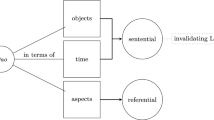Abstract
Recent scholarship has demonstrated Molina’s rejection of transworld damnation, claiming instead that there is at least one feasible world where any individual is freely saved, lost, or does not exist. This article argues that one can subscribe to Molina’s doctrine of individual predestination while maintaining, with William Lane Craig, that no actual person who fails to hear the gospel and is lost would have been saved in some feasible world where s/he heard the gospel. As part of the divine deliberation, God could narrow down the spectrum of feasible worlds to a lower-order spectrum by factoring out worlds which, among other conditions, contain anyone who does not fall into either of two types. The first type comprises persons saved in at least one world where they receive only general revelation at the moment of salvation, lost in at least one world where they receive only general revelation, and lost in every world where they receive special revelation without first appropriating salvation through general revelation. The second type comprises persons saved in at least one world where they receive special revelation without first appropriating salvation through general revelation and lost in at least one comparable world.
Similar content being viewed by others
Notes
All Scripture quotations come from the NIV.
Contemporary Molinism is based on only book four of Molina’s seven-volume theological magnum opus, Liberi Arbitrii cum Gratiae Donis, Divina Praescientia, Providentia, Praedestinatione et Reprobatione Concordia. Book four spells out the theory of middle knowledge and is the only book that has been translated into English (Freddoso 1988). I (MacGregor 2015) present Molina’s theological applications of middle knowledge as delineated in books five through seven of the Concordia.
Molina thus assumes the existence of the actual infinite as well as God’s apprehension of an actually infinite number of worlds. I acknowledge that this assumption is quite controversial. Contra the assumption see Craig (1979, pp. 65–99), although Craig grants that on conceptualism (and Molina was a conceptualist), the actual infinite could have a purely ideal existence but not real existence (1979, pp. 88–89). Pro the assumption see Erasmus and Verhoef (2015). For the sake of argument, I am conceding that actually infinite sets of worlds can exist in the mind of an omniscient being and that it is possible for such a being to know an actually infinite number of things.
For anyone to be lost because of historical or geographical accident seems incompatible with the existence of an all-loving and all-just God.
I thank an anonymous reviewer for suggesting that I address this important question.
Although the point is, in my judgment, moot, someone with Reformed sympathies could argue that, even if transworld saved persons were feasible for God to create, God would not want to create them because of his sovereignty. For such persons would arguably be sovereign over their own salvation. If God is obliged by his goodness to give them the gospel on account of his middle knowledge that they would accept the gospel if they heard it, then such persons are necessarily saved if they exist. God would have no choice but to save them, and they could make the case that they owe salvation only to themselves.
References
Copan, P. (2009). True for you, but not for me: Overcoming objections to Christian faith. Rev. ed. Bloomington, MN: Bethany House.
Craig, W. L. (1979). The kalām cosmological argument. New York, NY: Macmillan.
Craig, W. L. (1989). “No other name”: A middle knowledge perspective on the exclusivity of faith in Christ. Faith and Philosophy, 6(2), 172–188.
Craig, W. L. (1995). Politically incorrect salvation. In T. R. Phillips & D. Okholm (Eds.), Christian apologetics in the modern world. InterVarsity: Downers Grove, IL.
Erasmus, J., & Verhoef, A. H. (2015). The kalām cosmological argument and the infinite God objection. Sophia, 54(4), 411–427.
Flint, T. P. (1998). Divine providence: The Molinist account. Ithaca, NY: Cornell University Press.
Little, B. A. (2005). A creation-order theodicy: God and gratuitous evil. Lanham, MD: University Press of America.
MacGregor, K. R. (2015). Luis de Molina: The life and theology of the founder of middle knowledge. Grand Rapids, MI: Zondervan.
Molina, L. (1988) On divine foreknowledge: Part IV of the Concordia. (Alfred J. Freddoso, Trans.) Ithaca, NY: Cornell University Press.
Pinnock, C. H. (1992). A wideness in God’s mercy: The finality of Jesus Christ in a world of religions. Grand Rapids, MI: Zondervan.
Author information
Authors and Affiliations
Corresponding author
Rights and permissions
About this article
Cite this article
MacGregor, K.R. Harmonizing Molina’s rejection of transworld damnation with Craig’s solution to the problem of the unevangelized. Int J Philos Relig 84, 345–353 (2018). https://doi.org/10.1007/s11153-018-9662-5
Received:
Accepted:
Published:
Issue Date:
DOI: https://doi.org/10.1007/s11153-018-9662-5




